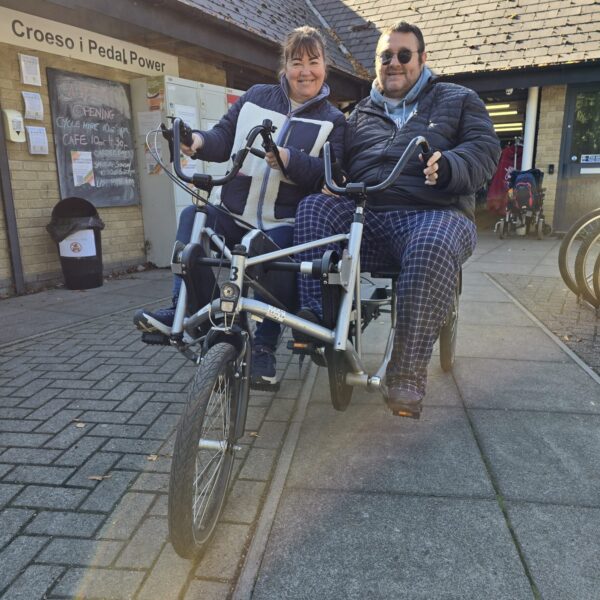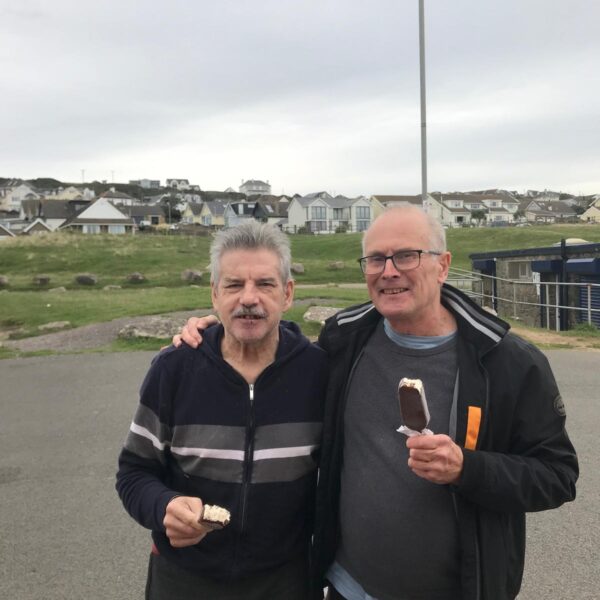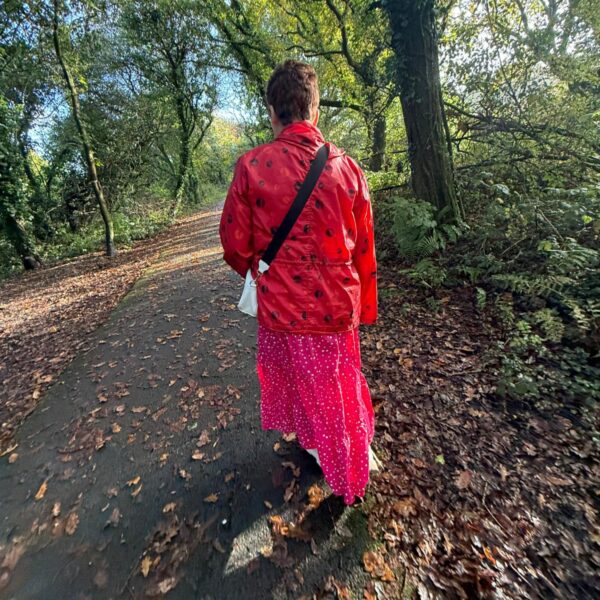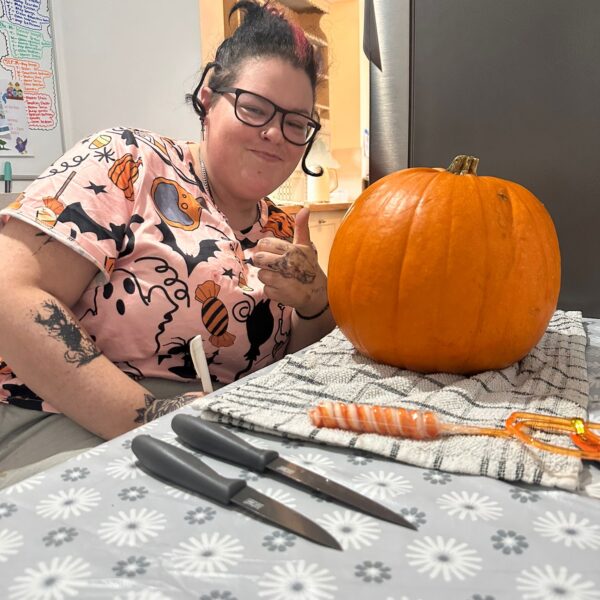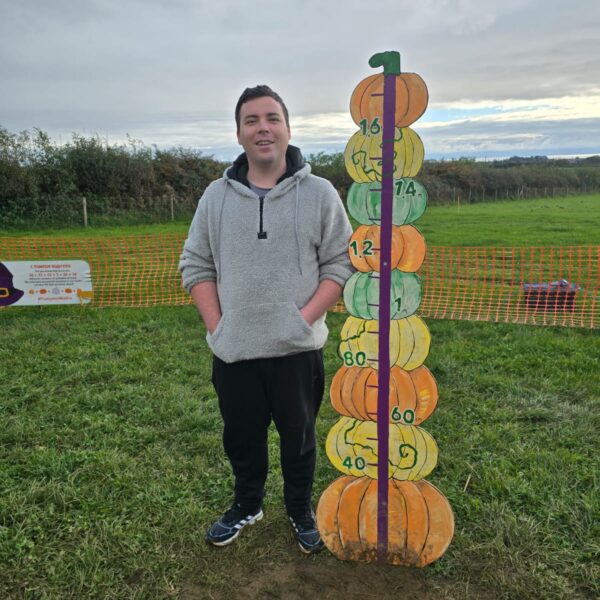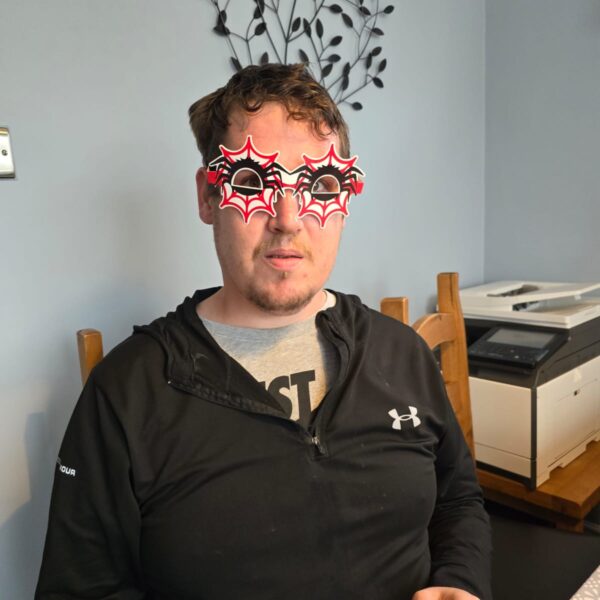1. What is High-Functioning Depression and Anxiety?
High-functioning depression is not an official diagnosis, but the term describes individuals who experience depressive symptoms yet manage to maintain daily responsibilities medicalnewstoday.com priorygroup.com.
Depression

In clinical terms, it often aligns with persistent depressive disorder (dysthymia) – a chronic, mild form of depression. Unlike a major depressive episode which is severe and usually obvious, dysthymia involves a continuous low mood that may appear “normal” to others because the person’s symptoms are less debilitating medicalnewstoday.com priorygroup.com.
For example, someone with high-functioning depression might feel sad, fatigued, and pessimistic, but still go to work and socialize, albeit with great internal effort northernhealthcare.org.uk. They fulfill obligations while feeling empty or “in a funk” internally, so their struggles often remain unseen counselling-directory.org.uk.
Anxiety
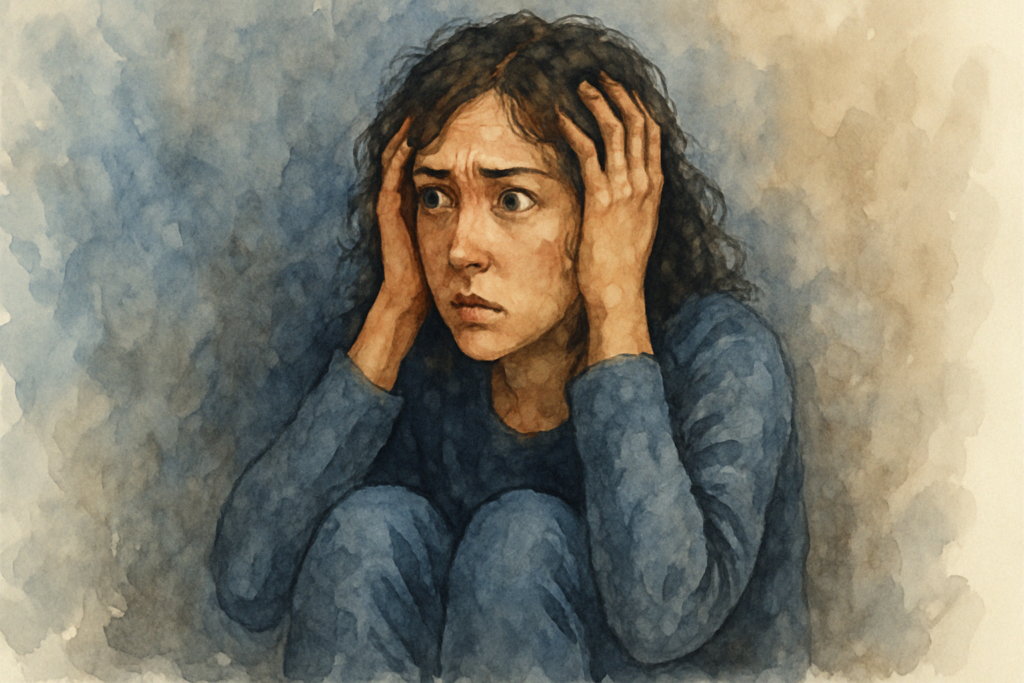
High-functioning anxiety likewise refers to individuals who experience chronic anxiety (such as excessive worry, tension, and overthinking) but outwardly cope well. It is not a formal diagnosis in manuals like DSM-5, but a descriptive term. People with high-functioning anxiety typically meet many symptoms of generalized anxiety disorder (GAD) – for instance, constant worry or inner turmoil – yet they appear calm and successful externally bupa.co.uk counselling-directory.org.uk.
The key difference is one of outward impairment: Generalised Anxiety Disorder is usually diagnosed when anxiety causes significant distress or interferes with daily life (e.g. struggling to work or socialize) nhs.uk. By contrast, those with high-functioning anxiety often mask their distress and continue to perform at a high level, so they might not seem impaired even though they feel intense anxiety internally bupa.co.uk.
Current Understanding in The UK

In short, the “high-functioning” label means the person’s mental health issues are real but hidden behind a façade of normalcy.
Current understanding in the UK recognises that these high-functioning forms are common yet underdiagnosed. Many Brits experience what NHS and mental health charities term “mixed anxiety and depression,” a blend of milder symptoms that doesn’t neatly fit severe diagnostic categories. In fact, mixed anxiety-depression is Britain’s most common mental health condition, affecting about 7–8% of people any given week mentalhealth.org.uk mind.org.uk
2. The Mask of Productivity
People with high-functioning mood disorders often wear a “mask” of productivity and positivity to hide their internal pain. There are powerful psychological and social reasons behind this coping strategy.
The Role of Stigma

Stigma and misunderstanding play a big role – sufferers fear being judged or not taken seriously because outwardly they seem “fine.” They may think others won’t understand their struggles if they admit to them. For instance, a person might carry on as normal and avoid asking for help because they worry those around them will not understand what they’re going through northernhealthcare.org.uk.
Individual Personalities
Personality traits and coping styles also drive the mask of productivity. High-achieving or perfectionistic individuals tend to tie their self-worth to success and competence. Paradoxically, when anxiety or depression strikes, they often respond by overcompensating – working even harder and striving for even more perfection to maintain control.
As one psychologist observed, many executives and high performers who notice mental health “red flags” will “put their foot on the gas” and push themselves harder, using work as an unhealthy coping mechanism bupa.co.uk.
Pushing Through it
In their minds, slowing down or showing struggle isn’t an option, so they double down on productivity to escape or “outrun” their feelings. This performative coping can fool people around them (and sometimes the individuals themselves) into thinking nothing is wrong.
A UK psychotherapist notes that such a person might “mask their symptoms or become highly performative to disguise the depression,” causing others to misread the signs as mere personality quirks (like being moody or irritable) rather than a mental health issue counselling-directory.org.uk.
In other words, they perfect the art of appearing excessively together – staying on top of work, keeping social commitments, and never letting the mask slip.
3. Emotional Exhaustion and Burnout
Maintaining a façade of normalcy despite depression or anxiety is mentally and physically exhausting. Over time, the effort of pretending to be okay – smiling, performing, and suppressing negative emotions – drains one’s energy reserves. Many high-functioning individuals report perpetual fatigue.
For example, even if they appear productive, they might privately feel tired all the time, struggle with sleep, and find that completing routine tasks requires immense effort northernhealthcare.org.uk.
“Burning the Candle at Both Ends”

Essentially, they are burning double the fuel: one part of them deals with the usual demands of work and life, while another part constantly battles or conceals their internal symptoms. This continual internal battle can lead to emotional exhaustion, where the person feels “empty” or numb. They may fulfill roles – employee, parent, friend – on autopilot, all the while inching closer to burnout.
What is Burnout?
Burnout is a state of chronic stress and exhaustion, and high-functioning sufferers are at high risk because they rarely give themselves permission to rest or recuperate. The long-term impact on mental health can be severe. By pushing through depression or anxiety without adequate support, individuals often exacerbate their conditions.
What starts as mild, hidden depression can deepen over the years. Psychotherapists note that relentless stress (for instance in a high-pressure job) can “easily turn to burnout,” which in turn provokes secondary mental health problems, such as anxiety and depression becoming chronic counselling-directory.org.uk.
4. The Danger of Misdiagnosis and Lack of Support
High-functioning individuals with mood disorders are often overlooked or misdiagnosed by healthcare providers, meaning they don’t get the support they need. One reason is that they don’t fit the stereotype of someone who is depressed or severely anxious.
A GP appointment in the UK may last only 10 minutes, and if the patient is well-dressed, employed, and saying they’re “fine, just a bit tired,” the deeper issue can be missed.
Many mask their symptoms so well that even doctors and therapists struggle to spot the distress counselling-directory.org.uk. In mild cases, depression might be brushed off as just a personality trait. As one counsellor notes, the subtle symptoms might be excused as someone “just being moody” or pessimistic, rather than recognized as depression counselling-directory.org.uk.
The UK’s Awareness Gap
In the UK, awareness of this gap is growing. Experts are calling for better screening and understanding – for example, realising that high performance does not equal high mental health. There is recognition that workplaces and GPs should be alert to those who appear well but report persistent low mood or anxiety.
The danger of not addressing these cases is clear: without proper support, high-functioning depression can worsen until it becomes debilitating, and high-functioning anxiety can escalate into panic attacks or breakdowns. In the worst cases, people who seemed to “have it all together” might reach a crisis point (such as contemplating self-harm) with little warning, because their pain was hidden. This makes improved recognition essential.
Bridging the support gap – through proactive mental health check-ups and encouraging honest conversation – is an ongoing challenge for the UK’s healthcare system, which currently leaves many high-functioning individuals to “suffer in silence”.
5. Coping Mechanisms and Treatment Options
Despite these challenges, there are effective strategies and treatments to help individuals manage high-functioning depression and anxiety. Coping mechanisms typically involve both personal self-care approaches and leveraging support networks. Mental health experts emphasize first acknowledging the problem – one must accept that they are struggling and it’s not “normal” to feel persistently sad, anxious or empty northernhealthcare.org.uk.
Learning to Talk About It

This mental shift is important for high-functioning people who often downplay their feelings. Rather than judging oneself for not coping “perfectly,” it’s crucial to recognize the need for care. Next, sharing feelings with someone trusted can relieve the pressure. This might mean opening up to a close friend or family member about what’s really going on behind the mask.
Many find that simply talking about their low days or worries is cathartic and makes it easier to seek further help. If talking is hard, writing in a journal or expressing emotions through art can also be a release northernhealthcare.org.uk. The key is not to carry the burden alone.
Physical Activity
In terms of day-to-day coping, maintaining healthy routines and self-care practices can significantly improve mood and stress levels. Regular physical exercise is one of the simplest and most effective tools. The NHS notes that exercise is a proven treatment for mild depression and can boost mood nhs.uk.
Even a daily walk or some form of movement can reduce anxiety and improve sleep. Many doctors will actually “prescribe” exercise or refer patients to group activity programs as a part of treatment for mild depression nhs.uk.
Make Time for Relaxation

Other self-care practices include mindfulness and relaxation techniques. Learning mindfulness meditation, deep-breathing exercises, or yoga can help calm the overactive mind and relieve anxiety. In fact, a notable portion of high-functioning individuals turn to these methods: one survey of executives with high-functioning anxiety found 44% used relaxation techniques and 33% practiced mindfulness/meditation to cope bupa.co.uk.
Alongside self-help strategies, there are effective treatment options available via the NHS and privately. The first port of call is usually your GP (General Practitioner). It’s advisable to clearly communicate your symptoms to the GP – even if you function well, explain the low mood, anxiety, or exhaustion you feel internally.
Therapy
GPs in the UK can offer advice and also refer you to therapy services. The NHS provides Talking Therapies (previously called IAPT – Improving Access to Psychological Therapies) for common mental health problems like depression and anxiety. You can be referred by your GP or even self-refer to these services in your area northernhealthcare.org.uk nhs.uk.
Cognitive Behavioural Therapy (CBT) is one of the most commonly recommended therapies – it helps you identify and reframe unhelpful thought patterns and gradually change behaviors. For high-functioning individuals, CBT can be very useful to challenge perfectionism, negative self-talk, or catastrophic thinking associated with anxiety. Other therapy modalities include counselling (providing a space to talk and be heard), interpersonal therapy (focusing on relationships), or even newer approaches like mindfulness-based therapy. Counselling or therapy is highly beneficial – it provides tools to manage symptoms and also a private outlet to finally drop the “I’m fine” mask counselling-directory.org.uk.
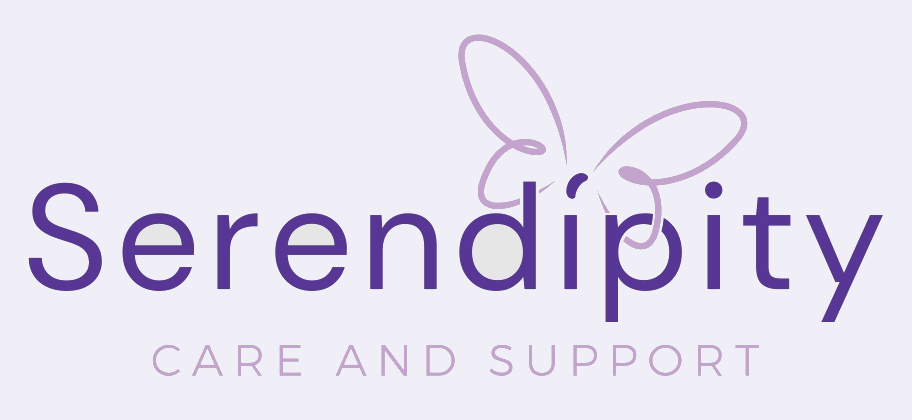











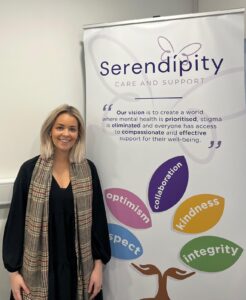
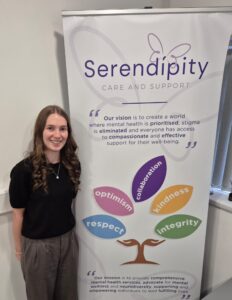
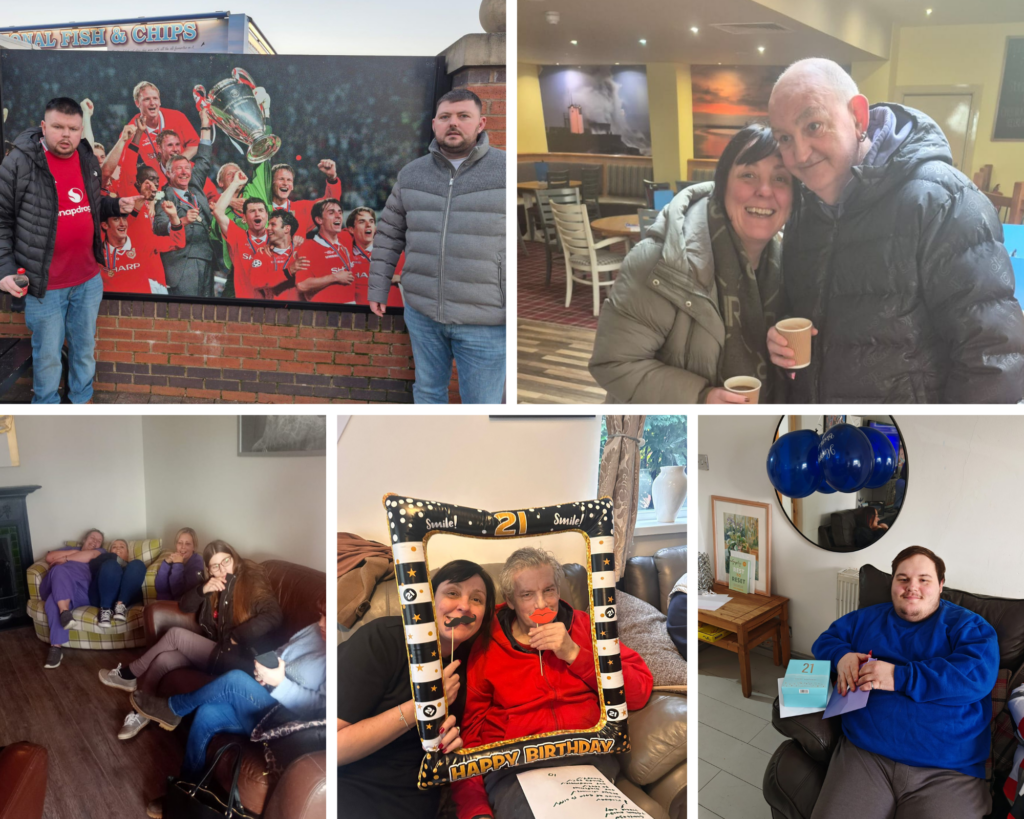


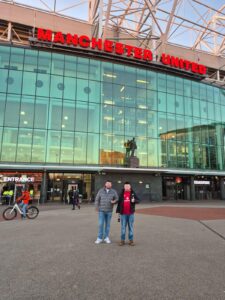
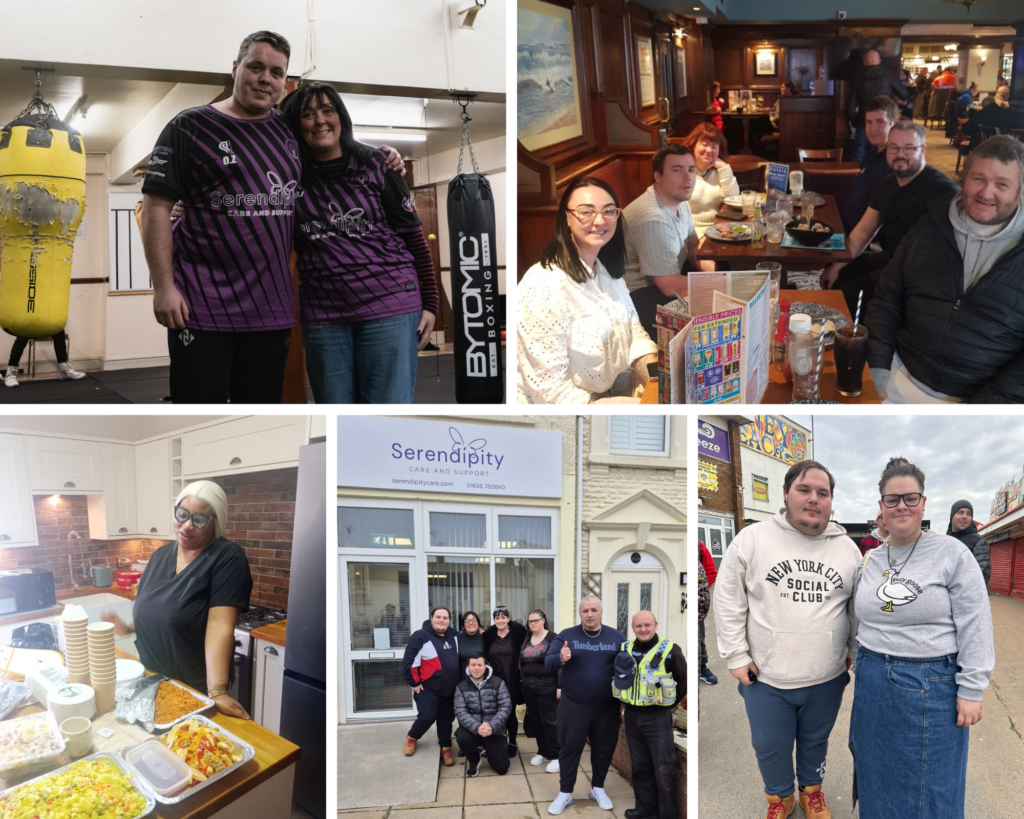 Bellwave Corner
Bellwave Corner
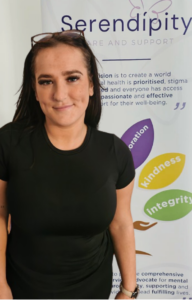
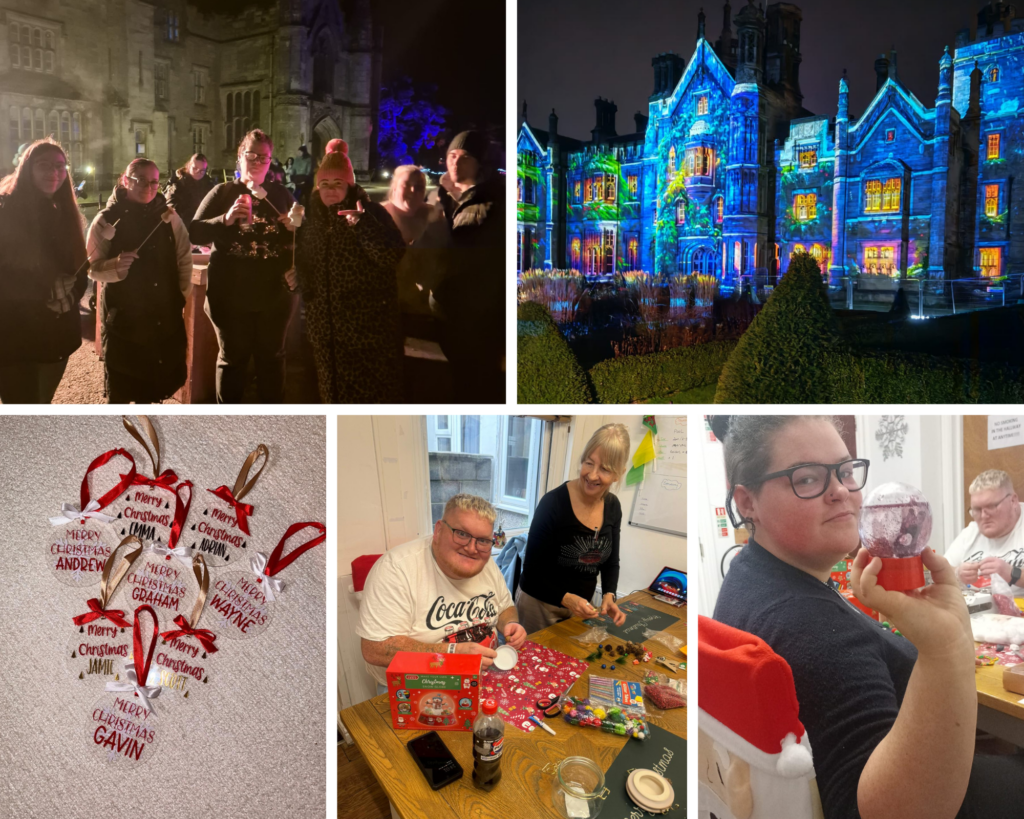







 Bellwave Corner
Bellwave Corner Bellwave Apartments 1
Bellwave Apartments 1






 We hosted a special event to celebrate World Mental Health Day, with this year’s theme centered on “Mental Health in the Workplace.” The event featured a fantastic lineup of contributors, each helping make the day a success.
We hosted a special event to celebrate World Mental Health Day, with this year’s theme centered on “Mental Health in the Workplace.” The event featured a fantastic lineup of contributors, each helping make the day a success. We’re excited to welcome our new Senior Support Workers, Cai Phillips and Daniel Penpraze, to Bellwave House. Both have started settling well into their roles, bringing enthusiasm and dedication to our team.
We’re excited to welcome our new Senior Support Workers, Cai Phillips and Daniel Penpraze, to Bellwave House. Both have started settling well into their roles, bringing enthusiasm and dedication to our team.
